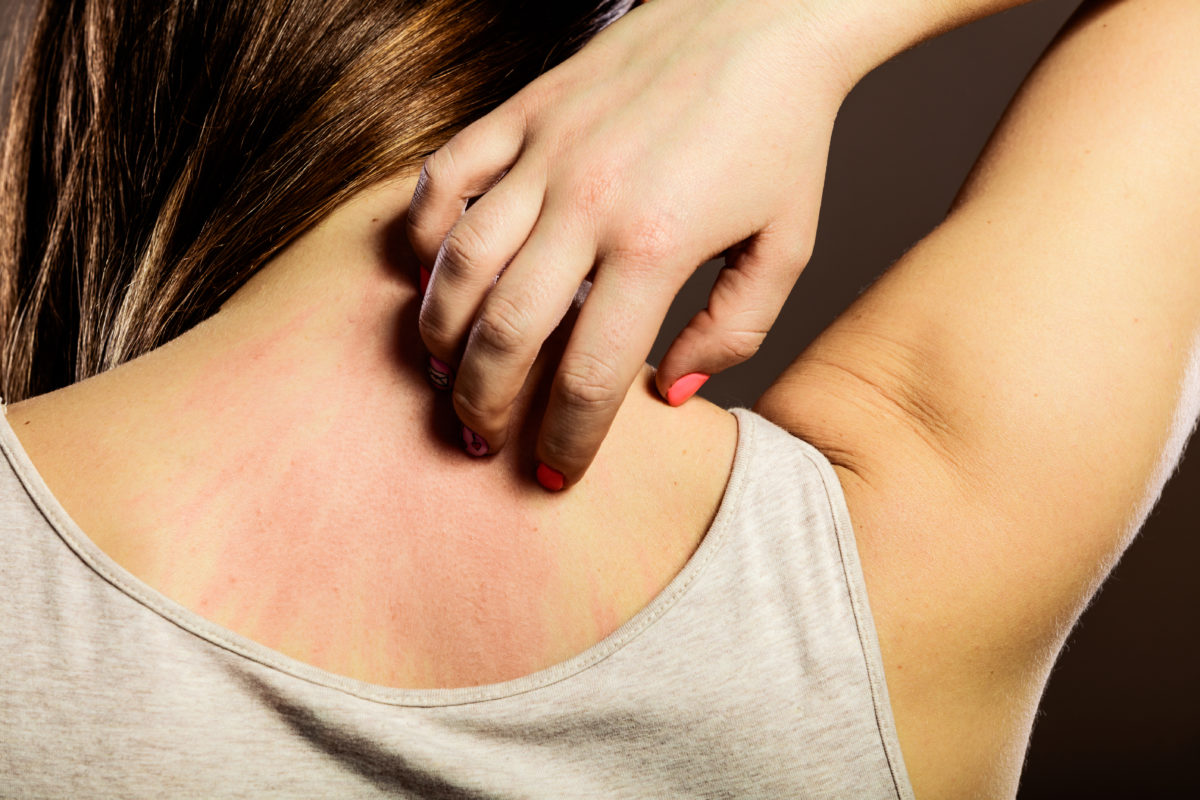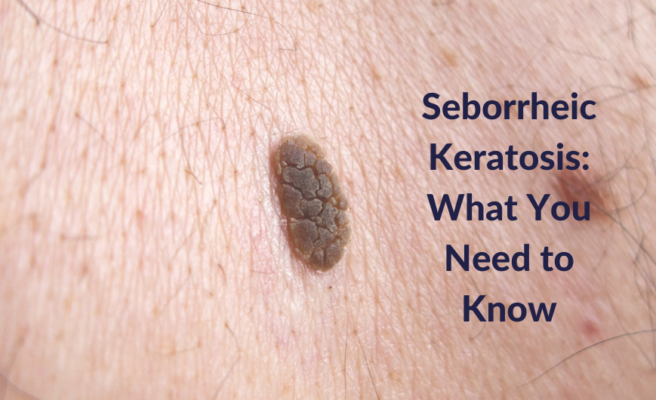Allergic skin reactions present as red, bumpy, and/or itchy skin. Skin allergies can be irritating, painful, and even embarrassing. Exposure to different allergens or irritants can cause rashes, such as poison ivy, various medications, chemicals found in topical lotions or creams, or food. Some illnesses can also cause rashes. Two of the most common types of rashes are eczema and hives. If an allergic skin reaction causes a rash or discoloration, you can see a Skin Care Provider or Allergist to get to the bottom of what’s causing the issue. They can also run allergy patch tests.
Common Skin Allergy Reactions
Some common skin reactions treated include:
Eczema
Patients experiencing eczema often have dry, sensitive skin and may also experience red, itchy patches on their skin. Eczema can flare-up and go away and depending on the severity may crack, ooze, and itch.
Hives
Hives are also known as urticaria. They are itchy bumps that are raised up and often are reddish in color. They may also turn white in the center when pressure is put on them.
Contact Dermatitis
This is a term for an allergic reaction that happens when an irritant or allergen comes into contact with the skin. Symptoms can include a rash, itching, blisters, or even a burning sensation in more severe cases.
Testing for Skin Allergies
At Bend Dermatology, we use patch allergy testing, which is a trusted and non-invasive allergy testing method. With patch testing, your skin is exposed to allergens and is then observed for signs of an allergic reaction. These results paired with your medical history can help confirm whether or not a particular substance is causing allergic symptoms (whether it’s what you’re touching, breathing in, or eating).We use the American Standard Series to test for allergies, which includes 80 of the most common allergens affecting patients in the United States. We also have a Dental Series, which is a more restricted selection of allergens that we may use for reactions involving the oral mucosa (the mucous membrane lining the inside of the mouth) or perioral area (the area immediately surrounding your mouth). Patch testing does not test for nasal, sinus, or respiratory allergies.
What to Expect With Patch Allergy Testing
Our team will walk you through the process so you know what to expect and are informed along the way. Your testing includes four appointments: a consultation, application of allergens, removal of patch chambers and an initial reading, and final reading.
Understanding Your Allergy Test Results
At Bend Dermatology, we make sure that our patients and their referring physicians (if applicable) have the details of the tests immediately as well as any supporting information to help ensure the best quality of life and make an action plan.
Is Allergy Testing Covered By My Insurance?
Yes, it is covered by most major insurance companies and Medicare. You’ll need to check with your individual insurance provider to confirm your coverage, though.
How to Treat Your Allergic Skin Reactions
If you’re experiencing rashes or think you may have skin allergies, you can book an appointment to see an experienced Provider to get an allergy test at one of our Central Oregon locations.












